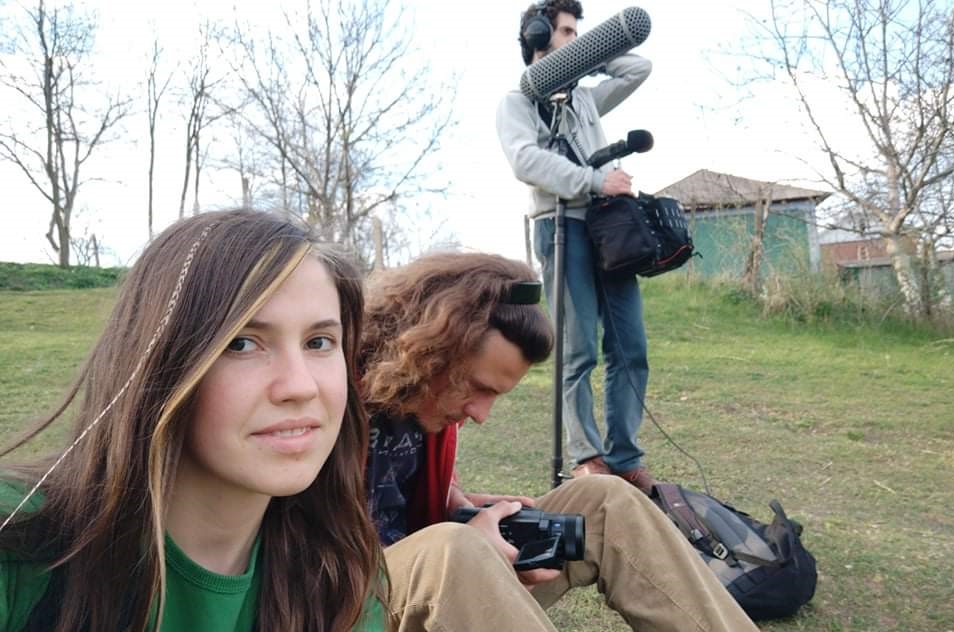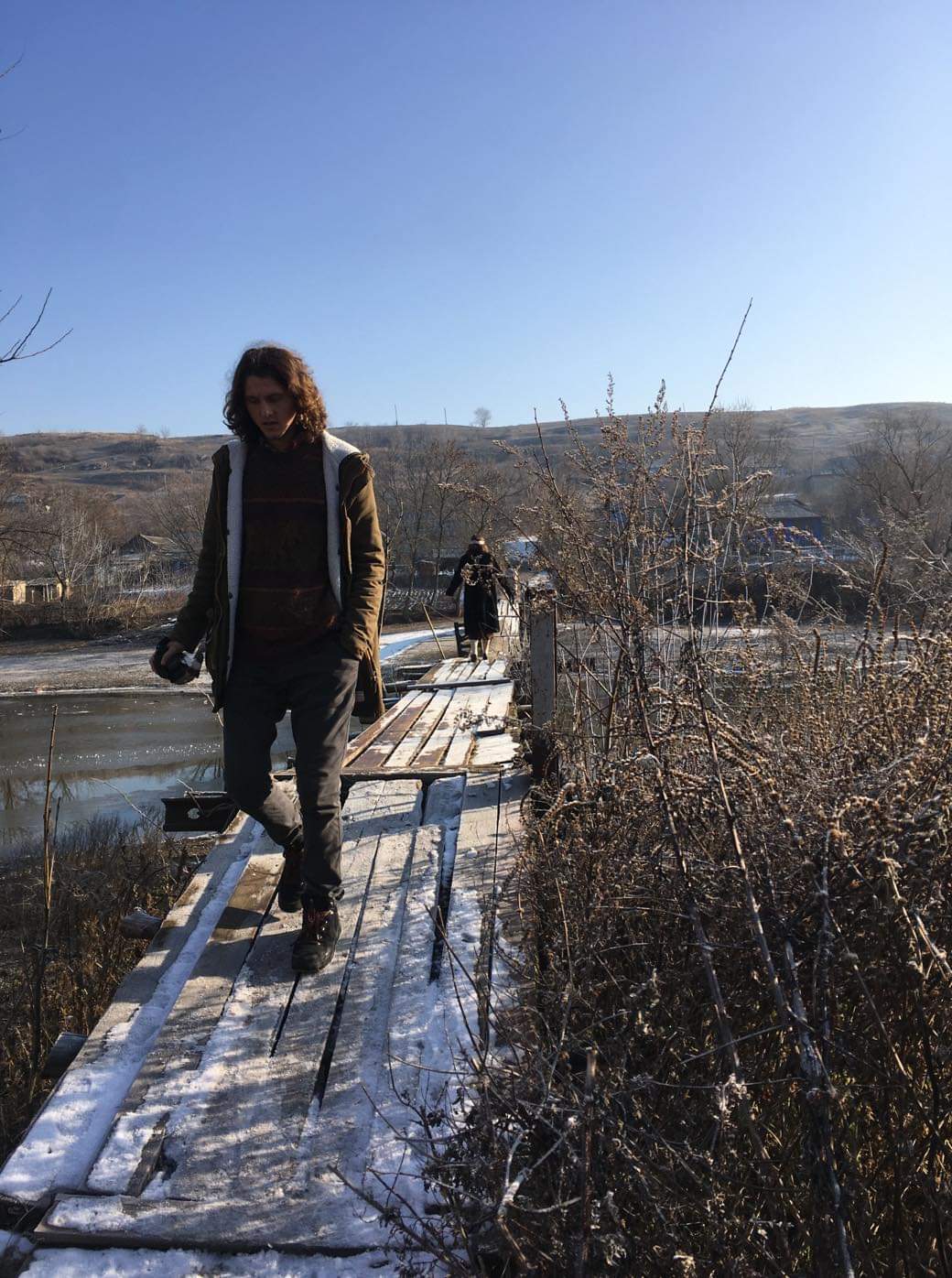by Diana Vlas, filmmaker, for UNDP Moldova
Missing home: life from the big screen of the documentary
December 18, 2020
"For the first time, we met people for whom the presence of the camera did not matter and were very open with us from the first seconds.” - Diana Vlas, author of the documentary
A year ago, when I was about 2,000 km from home in the Abkhazia region and participating in a cultural exchange project, I found out that I had won the screenplay competition for a documentary, organized by OWH Studio, UNDP and the Government of Switzerland.
My idea for the movie "Missing Home" was convincing, although I presented it online to the jury. The online dimension has in no way inhibited the stories of migrants who wanted to appear in the light of the big screens.
Migration, as a phenomenon with a positive impact, is a subject close to me. I know what it is like to live abroad and how much courage you need to return home.
My return from Georgia marked the beginning of filming. That scared me a bit, because I didn't have the experience of making a feature film and I also didn't know where to start from. I only had a few short movies in the portfolio and didn't know how to go the "long distance". Another concern was who to involve in my team, especially since we had to work together for a few months in a row. Shortly, Victor Galușca, my favourite director among colleagues, who was also a participant in the screenplay competition, and the sound engineer Constantin Coada, joined me. Great! I have the team in place, but what next? Consultations with Lucia Lupu, a young director, followed; she supported me a lot during the project and gave me a great deal of courage.
The author of the film, stop at the fountain
I am looking now through the video and notice that the first filming was in November 2019, while the last one, in July 2020. So, eight months of travel to my native village, Izvoare in Floresti district.
I was very happy every time I went to the field, because I had the opportunity to see my grandparents much more often than I used to, especially since we were staying in their house with the whole team.
In general, the fact that I grew up in the village where we were filming made the process much easier, people were much more open and interacted more easily with us, because a film crew is not always welcome in a village.
At first, I had a different concept of the film and the script was built on a character whose story was interesting, but in the end, indirectly, he refused to be filmed. That's how the journey through villagers’ houses began.
I talked to every man I met on the way, I asked about migration, and almost everyone had stories about it: either the person was abroad or someone in the family.
"In fact, the houses in the villages are not abandoned, most of the time people stayed in them until the last breath, only that nobody else came to live there. I found many objects, which are proof that those houses were loved and that their owners were hard workers: spindles, knitting devices, clay jugs, school notebooks since the ‘30s. But the most important thing is that they lived in an ecological environment (wood, stone, natural fabrics)." - Diana Vlas
Sometimes with tears in their eyes they talked to me about their experience abroad, about what it's like to be away from home and family, among strangers.
I found three powerful stories:
- Silvia Novac. A former migrant, returning from Italy. She told us her stories through photos - her past experience, the values of the family, the preservation of tradition, the love for her native village and even the house, where several generations lived.
- Moldovan-Turkish mixed family. We were very surprised when we found out that there are persons from Turkey in the village, a family in which the mother is Moldovan and brought her Turkish husband and their two children to her native village. They shared their family history with us. For the first time, we met people for whom the presence of the camera did not matter and were very open with us from the first seconds. Every time we saw each other, they prepared traditional Turkish dishes and offered us coffee prepared in their own way. After a short time of communication, I did not feel any discomfort at all speaking in a different language with the father of the family, everything was intuitive, clear. We decided not to translate his words in the film, so that the spectator could feel the same.
- Mitablinda family. I heard Nicoleta, the youngest of the family, reciting a poem about her parents who went abroad at the Christmas concert. She is still studying at the village school and is educated by her grandmother, and her brother is studying at a medical school. So, the parents left abroad to help them complete their studies. At first, I saw the desire to go abroad for good. But after half a year I noticed they reached the opposite pole - with the intention of returning and flourishing in their native village.
The hardest part was Constantin’s, the sound recording equipment weighing a few kilograms. Spring came with a lesser burden because he switched to light clothes.
The film crew, among friends
And the phrase most often heard in Moldovan villages "do not film me, you’re wasting your film!"
I caught all the seasons in the village. And each of them reflects the spiritual state of the village. In autumn-winter they are heavier, gloomier, and in spring-summer - lighter. This is also reflected in the film, in the dialogue with the people. And being with our heroes for several months in a row, they were waiting for us at their homes with great pleasure. And to this day I have remained in warm relations with them all.
"Victor! - What would be the project according to the script proposed by you? By the way, he also had a powerful subject. Maybe next?” - Diana Vlas
"Due to the filming in the north of Moldova, we are the lucky ones who caught the sleigh period in the winter of 2020, and we didn't miss the chance!" - Diana Vlas
Another challenge was the pandemic. To finalize the film, we needed two or three more field trips. And the scenes with Easter holidays were supposed to end the film. This is where we made changes in the scenario. But I think it was for the better, because that's how summer scenes appeared in the movie.
The film editing lasted five months. I had a timeline of about twenty-four hours. During this period, I was permanently in a state of deja-vu, I was still returning to the village in the improvised editing studio. At this stage I was working with Cristian Niholat, the most patient editor I have ever met. I am very grateful to him.
Premiere. The producer of the film, Virgiliu Mărgineanu from OWH Studio, told me the news that "missing" will be released online. It saddened me to be deprived of people's lively reactions, to hear them laugh and sigh. But then followed a screening on the big screen with spectators in the hall and a tour in several localities of Moldova.
I had the opportunity to talk to many people, most often these were requests for face-to-face discussions, where I was told other stories of migrants. I had many messages asking me to give them access to the film, so that people could show it to relatives abroad. Then there were even more messages with the same requests from Italy, United Kingdom, Germany, Russia. This is how the idea of an official launch of the film in the online space appeared. I thought it was important for it to be seen here as well. But the latest events have led me to the idea that the film is of much greater value to our migrants. It will be like a Christmas card for them. By the way, I am happy that we managed to capture a neo-carol sequence for the film, I was also curious how this holiday happens in Moldovan villages nowadays.
The premiere on the big screen with spectators and close friends.
Thank you. Colleagues, a big thank you. OWH Studio for the experience. UNDP and the Government of Switzerland for the opportunity to make such a film, one that is very important to me personally. The consultants of this film for their patience and involvement.

 Locations
Locations











